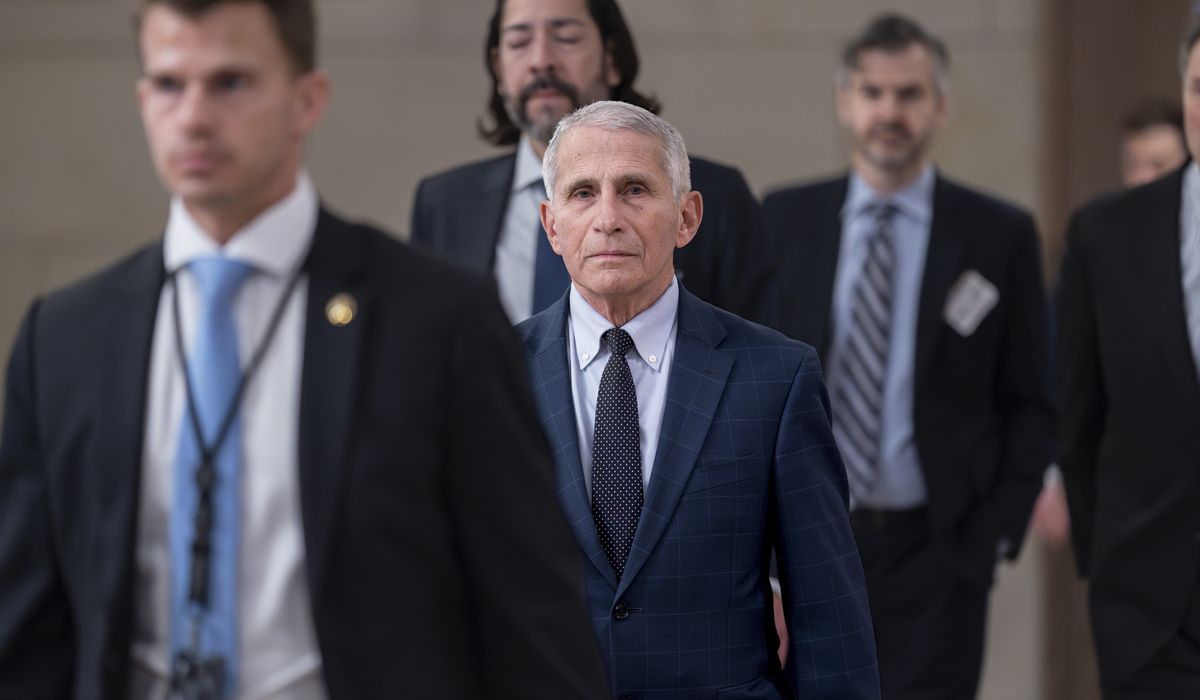


Dr. Anthony Fauci on Monday blasted his critics in Congress and elsewhere, rejecting claims he downplayed a lab leak for the origins of the coronavirus, distancing himself from a senior health adviser and saying he left the country well-positioned to combat the pandemic.
In a high-profile congressional hearing, Dr. Fauci called attacks “absolutely false and simply preposterous.”
He said early 2020 emails showed he pushed colleagues to explore the theory that the coronavirus leaked from a Chinese virus research lab.
“I have always kept an open mind to the different possibilities,” he said in testimony to the House select subcommittee dedicated to the pandemic.
Dr. Fauci also distanced himself from Dr. David Morens, whose title is senior adviser to the director at the National Institute of Allergy and Infectious Diseases. Dr. Fauci was the director.
Dr. Morens has come under fire for emails saying he was trying to hide information from the public, including circumventing Freedom of Information Act requirements.
Dr. Fauci said despite Dr. Morens’ title and despite working together on papers, they weren’t close.
“Dr. Morens was not an adviser to me,” he said.
Dr. Fauci was the face of the U.S. response to the coronavirus, advising first President Donald Trump and then President Biden on responses.
Congressional Republicans say Dr. Fauci misled the public by portraying a certainty around the science of the pandemic, including vaccines, social distancing and the virus’ origin.
“You became so powerful that any disagreements that the public had with you were censored on social and most legacy media,” said Rep. Brad Wenstrup, the Ohio Republican who leads the subcommittee. “This is why Americans became so angry.”
At the same time, Mr. Wenstrup praised Dr. Fauci for the work done on vaccines.
Dr. Fauci said decades of research left the U.S. poised to launch effective counters to the coronavirus within a year, which he said saved tens of millions of lives globally.
For more information, visit The Washington Times COVID-19 resource page.
• Stephen Dinan can be reached at sdinan@washingtontimes.com.
